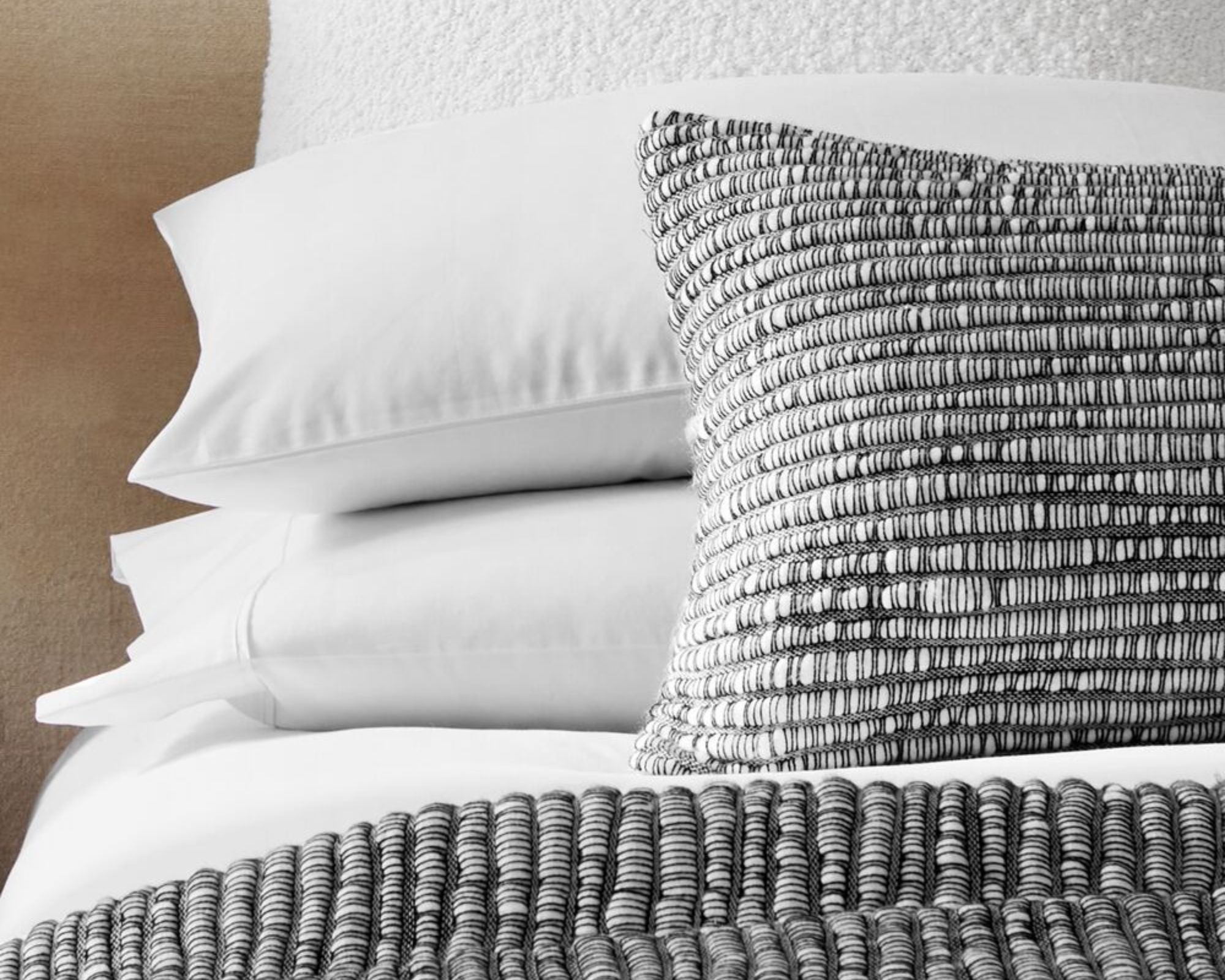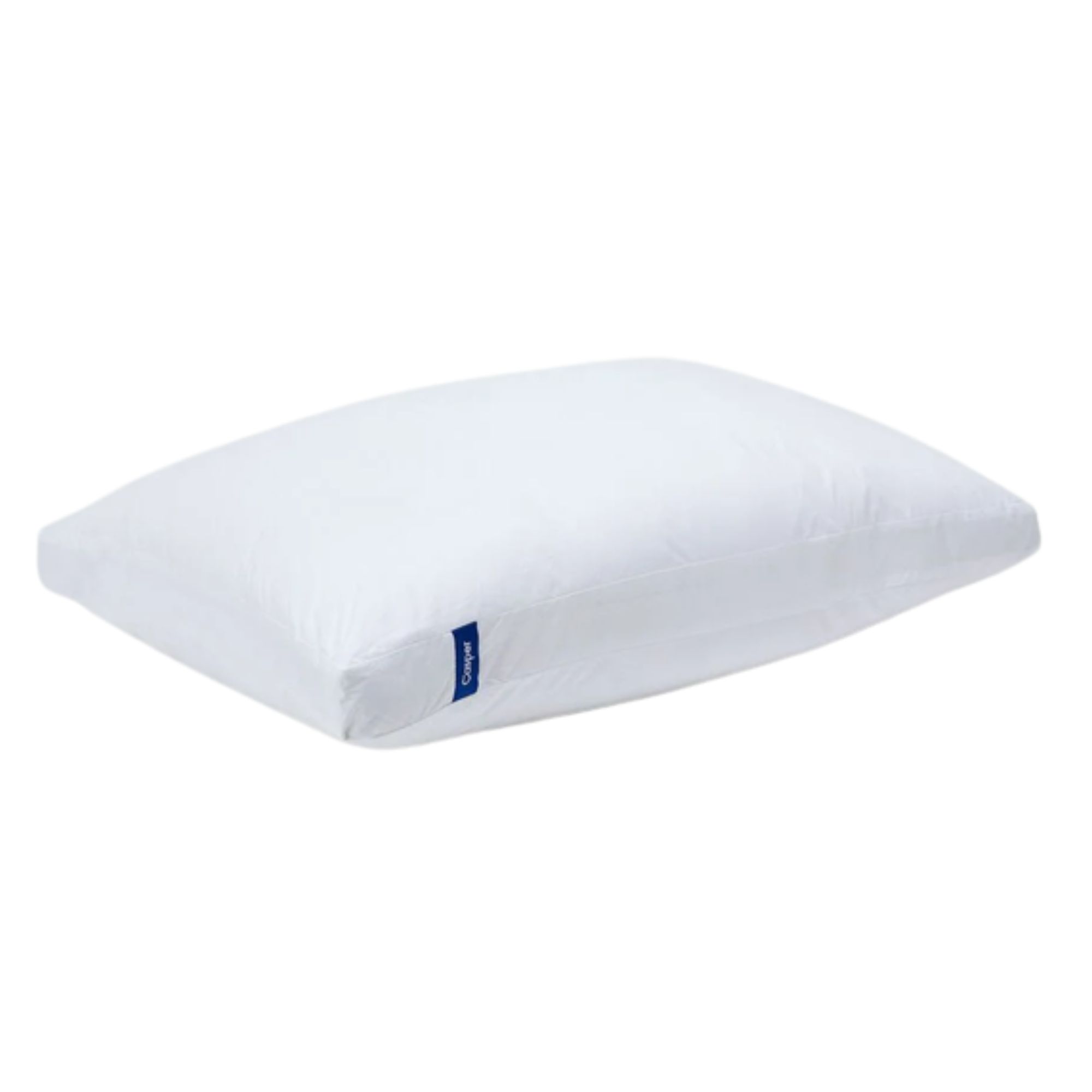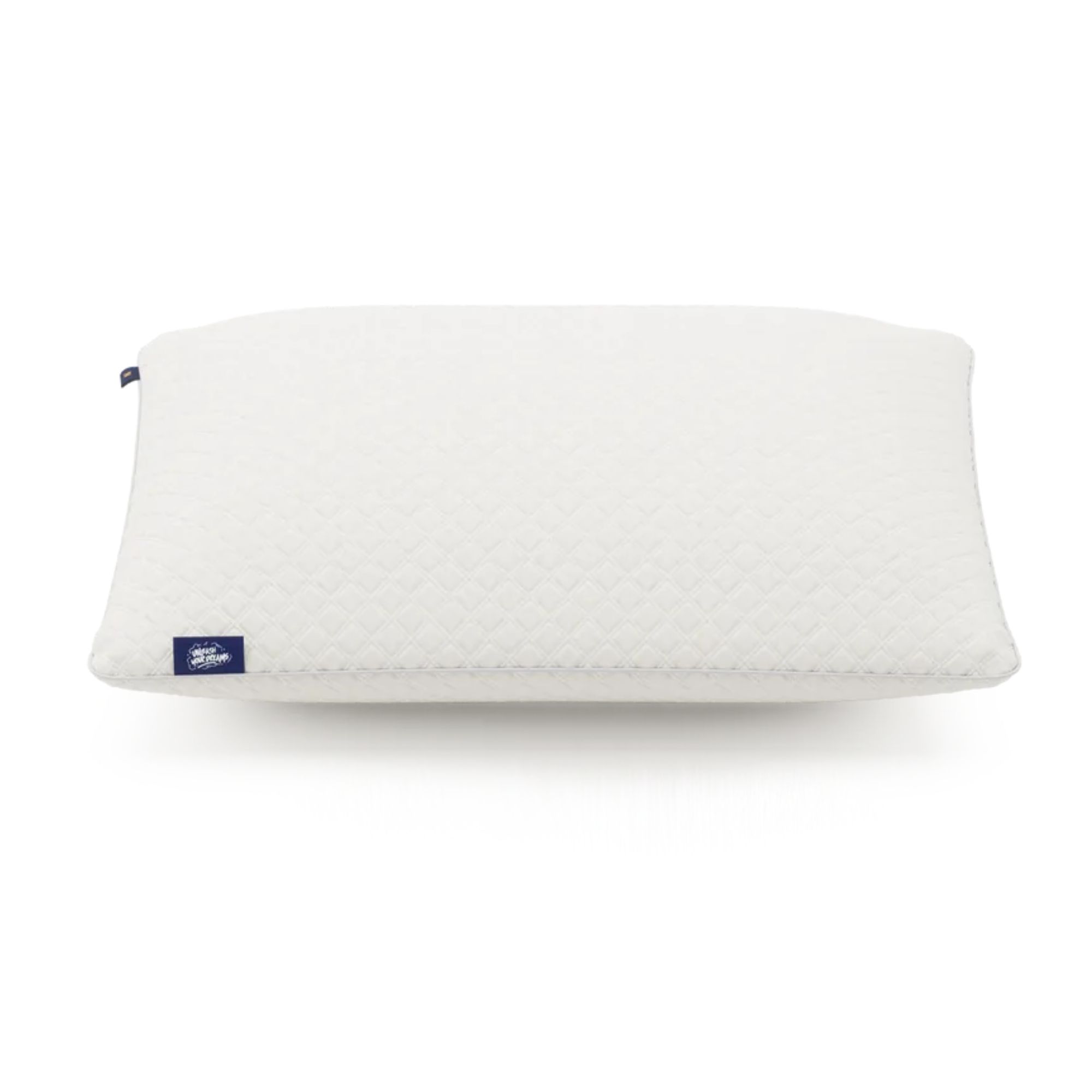
Waking up with a stiff neck from sleeping can be surprisingly painful. You might not even be able to turn your head without it hurting. While it may not affect you after a few hours, a stiff neck can bring excruciating pain first thing in the morning. It's no way to start the day.
But the good news is that solving this problem could be as simple as switching out your pillow. Awkward neck positions, muscle strain, and poor sleep posture are all causes of stiffness when sleeping. If your pillow isn't supporting your neck and head properly, it could be to blame. Even if your neck pain began from a sports injury, the wrong pillow could be contributing to and aggravating issues further.
The experts agree: sleeping on the wrong pillow for your sleep position, size, and weight is one of the main sources of a stiff neck. Finding the best pillow for you will have you sleeping, and waking, pain-free.
Stiff neck from sleeping? Your pillow guide to pain-free slumber
When it comes to sleeping comfortably, it first comes down to figuring out your sleep style. Just as the best mattress for you is one that supports and cushions your body depending on the position you sleep in, choosing a pillow according to sleep style is key to pain-free sleep.

Is your pillow to blame?
If you're waking up with a stiff neck after sleeping, yes, your pillow could be to blame. Pillows should suit your size, weight, and the way you sleep. if the pillow you're resting on isn't right for you, there's no surprise you're suffering. As Dr. Kevin Lees, director of Chiropractic Operations at The Joint Chiropractic explains, 'pillows that aren't sized right or have lost their support can contribute to a stiff neck and further pain.'
Pillows have a lifespan, and if yours are past their sleep-by-date and have lost their fluff and shape, then they might not be supporting your neck as well as they once did. Otherwise, your current pillows, even if in good condition, could be to blame. Here's how to tell if your pillow is the reason you're experiencing a stiff neck depending on your sleep style:
- Back sleepers: If you find you are 'looking at your feet rather than the ceiling when you lay in bed, then it could be your pillow is too thick,' explains Lees, 'forcing your neck forward.' On the contrary, if your neck is falling back and you're having difficulty breathing, it's likely your pillows are too flat.
- Side sleepers: When in bed, if your 'shoulder falls forward your pillow is too flat.' says Lees, 'It should sit as if you are standing up, rather than folding beneath you in order for your head to reach the pillow.' If your ear is being pushed into your shoulder, your pillow could be too thick. 'Both of which can lead to upper back pain and neck ache.' he states.
- Front sleepers: Stomach sleepers will either turn their head to sleep or bury their head face-down into a pillow. Turning the head is extremely dangerous and can easily lead to severe neck pain if your pillow is at the wrong height. A pillow is too thick and your neck will be pushed up and away from the spine. Sleeping without a pillow, or at least a very thin one is considered best for front sleepers.
How choosing the right pillow can help
Note that you should always consult a doctor if you're struggling with severe, and constant neck pain. Choosing the right pillow can help keep you a little more comfortable, but a practitioner may be able to identify and address any underlying causes.
When it comes to finding the perfect pillow to help with a stiff neck, you should look for the pillow that best suits your size and sleep style. James Leinhardt, sleep and posture expert and founder of Levitex, states that 'the pillow we sleep on is not a one-size-fits-all-approach'. You should choose a pillow based on how big you are, and the position you sleep in. 'When lying down, your head should remain in a neutral position, and not be pushed forward, back, or to the side,' adds Lees.
Side sleepers should generally opt for medium loft pillows that fill the gap between the bed and your head that the shoulders create. Front sleepers will appreciate a thin, soft pillow, if any at al, that cushions the neck enough to relieve any pressure, and back sleepers should use firm, thinner pillows to keep the head from lifting, or sinking.

Sizes: Standard, king
Filling: Polyester down alternative
Firmness: Medium
Care: Machine washable and dryer safe
This pillow is the perfect middle ground for those who switch sleep positions during the night. With a medium loft, it's not too soft, nor too firm to help most sleep comfortably. We loved it on test, and it has amazing customer reviews, with no complaints of a stiff neck.

Sizes: Queen
Filling: Shredded foam
Firmness: Adjustable
Care: Spot clean or dry clean
If you're a back sleeper with a stiff neck, you should switch to the Nolah squish. Thin, but not flat, you can stack the two pillows to create the perfect pillow height that molds to your body, and keeps your neck and spine supported.

Size: queen, king
Filling: Memory foam
Firmness: Medium
Care: Machine wash and tumble dry
A good choice for side sleepers, and those unsure which size pillow might be best for them without trying. The coop home pillow can be adjusted by adding or removing the memory foam fill. It'll fit the gap that side sleepers need to keep their head at the right height.
There are also specialist pillows on the market that offer extra support where you need it. 'Contoured pillows cushion the right areas' explains Leinhardt, 'A V-shaped pillow for example is perfect for side sleepers who need to keep their head upright and shoulders straight.' Woolroom's best-selling V-shaped pillow is designed to help those who suffer from shoulder, upper back, and neck pain.
FAQs
How long does a stiff neck last from sleeping wrong?
A stiff neck can be difficult to deal with, especially if it doesn't seem to be subsiding. Usually, if you've woken up with neck pain, it should go within a few hours. Stretching and gently massaging the area can help, though it might take a day or two before you start to notice any pain relief. While you should make sure your pillow is not to blame, you should consult a doctor if your stiff neck is particularly painful or it is proving to affect your day-to-day life. With the correct pillow, and advice from your doctor, a stiff neck should resolve itself within a week.
Can a stiff neck be caused by a mattress?
Yes. While pillows are the prime culprit for neck pain, a mattress that doesn't meet your needs can also cause a stiff neck. A mattress too firm, for example, can apply pressure to your joints and add stress to your muscles, causing discomfort. A mattress too soft may mean your body sinks into the bed, misaligning your spine, neck, and shoulders. Poor sleep posture can lead to a stiff neck as well as back pain. You should choose a mattress based on sleep style to ensure pain-free sleep.
Uncomfortable sleep isn't something you should ignore. If you're suffering from a stiff neck, back pain, or simply not getting a good night's sleep, it's important to prioritize your well-being. Sleeping well is vital for your health – make sure to consult a doctor and invest in getting your full eight hours a night.







